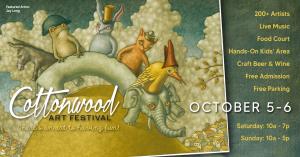
— Ronald Reine
POPLARVILLE, MISSISSIPPI, UNITED STATES, March 27, 2024 /EINPresswire.com/ — In an era where the pursuit of authentic, sustainable, and flavorful dining experiences is more prevalent than ever, the culinary exploration of wild game presents a unique opportunity for enthusiasts and chefs alike. Among the most esteemed in this domain are red deer and elk, two game meats renowned for their rich flavors and nutritional benefits. With this growing interest, Ronald Reine, owner of Hunters Bluff in Mississippi, offers invaluable advice and recipes for those looking to delve into the world of wild game cooking.
Cooking wild game, particularly red deer and elk, requires a nuanced approach that respects the unique qualities of the meat. According to Reine, the first step in this culinary journey is understanding the source of your game. “Wild game meat is significantly leaner than farm-raised alternatives, necessitating a careful approach to ensure it remains tender and flavorful throughout the cooking process,” says Reine.
Selecting and Preparing the Meat
Selecting the right cut is crucial. For beginners, Ronald Reine recommends starting with more forgiving cuts such as the shoulder or hindquarters, which lend themselves well to slow-cooking methods. The key to preparing these meats lies in their treatment prior to cooking. A marinade with acidic components like vinegar or lemon juice can tenderize the meat, while herbs and spices infuse it with flavor.
Cooking Methods
When it comes to cooking, the lean nature of red deer and elk calls for specific methods that retain moisture. “Slow cooking and braising are exemplary, transforming tougher cuts into tender, flavorful dishes,” states Reine. These methods allow for a gradual breakdown of the meat fibers, ensuring the meat remains succulent.
For those preferring quicker methods, Reine suggests pan-searing or grilling, especially for more tender cuts like fillets or steaks. “The key is to avoid overcooking,” he advises. Keeping the meat medium-rare to medium ensures it retains its moisture and flavor. Employing a meat thermometer is a wise strategy to ensure perfection without guesswork.
Flavor Pairings
The robust flavors of red deer and elk pair well with a variety of seasonings and sides. “These meats naturally harmonize with earthy herbs such as rosemary and thyme, and the richness can be balanced with tart fruit flavors like blackberry or cranberry,” Reine elaborates. This balance of flavors not only enhances the meat but also crafts a cohesive dining experience.
Recipe Highlight: Braised Elk Shoulder with Root Vegetables
Ronald Reine shares a cherished recipe that exemplifies the culinary potential of elk. The dish involves braising a seasoned elk shoulder with a mélange of root vegetables in a rich, herbed stock. The process, which gently coaxes the meat to tender perfection over several hours, encapsulates the art of wild game cooking. “This recipe is a testament to the beauty of simplicity and the depth of flavor achievable with the right techniques,” says Reine.
Sustainability and Ethical Considerations
Beyond the culinary aspects, Reine emphasizes the importance of ethical hunting and sustainability practices. “Sourcing wild game through responsible hunting ensures the preservation of natural ecosystems and supports wildlife management efforts,” he notes. This conscientious approach aligns with the growing demand for sustainable dining options and connects diners more closely with their food sources.
Conclusion
Exploring the culinary landscape of wild game, particularly red deer and elk, offers a pathway to not only unique and satisfying meals but also a deeper appreciation for the natural world and sustainable dining practices. Ronald Reine’s expertise and guidance shed light on the nuances of cooking with these meats, promising an enriching experience for chefs and home cooks alike. Through careful selection, preparation, and cooking, the rich flavors of wild game can be fully realized, providing a memorable and ethical dining experience.
In closing, Ronald Reine of Hunters Bluff in Mississippi invites enthusiasts and culinary adventurers to embrace the challenge and reward of cooking with wild game. Through respect for the ingredient and adherence to best practices, the preparation and enjoyment of red deer and elk can elevate any dining occasion, offering a taste of the wild that is both profound and palatable.
For those seeking to embark on this culinary journey, Ronald Reine’s insights and recipes serve as a beacon, guiding the way to mastering the art of wild game cooking.
Morgan Thomas
Rhino Digital, LLC
+ 15048755036
email us here
![]()
Originally published at https://www.einpresswire.com/article/699204859/expert-insights-on-preparing-and-cooking-wild-game-a-culinary-adventure-with-red-deer-and-elk



